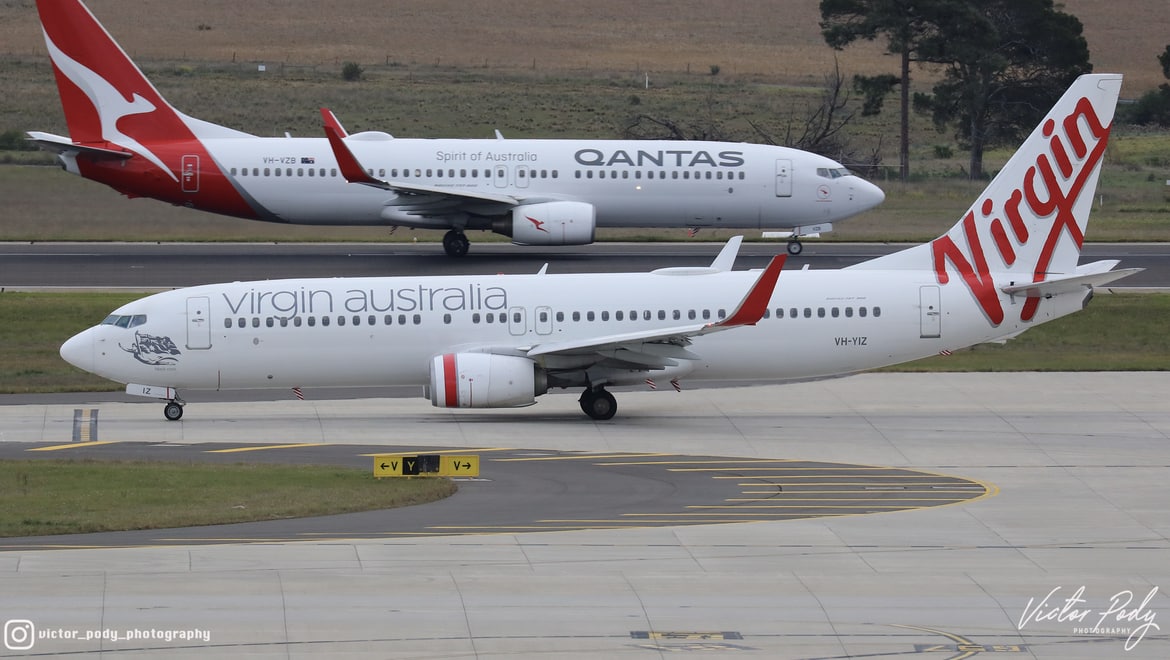
Australia’s major airlines have so far avoided mass stand-downs of staff despite half the country being put in lockdown and borders closing.
However, the TWU’s national secretary, Michael Kaine, said that situation is likely to “inevitably” change if NSW restrictions continue before its planned end next week.
On Friday, the state recorded 31 cases of community transmission, with 13 not in insolation while infectious. The number is the highest yet seen from the Bondi cluster of the Delta variant.
“People are currently working on ordinary hours,” said Kaine. “But for many in aviation, that itself is hard because they’re not getting the overtime and overnight allowances that they’ve become accustomed to.
“Clearly, casuals and part-timers will be used as a minimum, so they’re already suffering.
“But in terms of stand down, they haven’t been triggered yet. We had some pre-meetings with companies, which we are working with to attempt to avoid that.
“But it’s going to be an inevitability, particularly if the New South Wales situation doesn’t improve.
“And the prospect of coming out a lockdown next week, I think, is starting to diminish. And that’s going to mean real trouble.
“I think that we really are in territory where we’re going to need some relief. We continue to call for an AviationKeeper for situations like this so the system can become more nimble.”
Kaine said there are already calls in a couple of companies for staff to take unpaid leave.
“That means workers are going to be left to the vagaries of any potential social security system with no dedicated aviation payment,” he added.
Earlier this week, Australian Aviation reported how nearly 373 flights arriving or departing from Sydney Airport on Wednesday were cancelled or withdrawn from service as domestic aviation in Australia ground to a near halt.
The last time states and territories locked out NSW at Christmas due to the Northern Beaches cluster, it cost Qantas alone $400 million.
In February, Virgin chief executive Jayne Hardlicka told a senate committee that JobKeeper was necessary for dealing with snap border closures. She said losing the payment – which was eventually axed at the end of March – would be devastating.
Hrdlicka added it might be “impossible” for the business to “bear the financial cost” of operating in a market where borders are opening and closing without warning.
“We’ve got 3,000 highly skilled workers who are currently stood down and, as borders open, we bring them back in and they get hours, and they’re very happy to be back at work; then, when the borders shut, we have to stand them back down,” said Hrdlicka.
“If we did not have those people stood down and ready to go, it would take us weeks to get people identified to come back in, figure out who’s working and who’s not working and get them back in.
“They would all have to be retrained, in order to meet our regulatory requirements, and the volume of people that we would require, to be able to do that, means it’s months to get stood back up and to get the capacity to support the demand.”
The shutdown in domestic aviation in 2021 is arguably more difficult than last year because Qantas and Virgin have recently moved to significantly increase their networks and capacity.
Earlier this month, Qantas announced it would increase its capacity to 107 per cent of pre-COVID levels and Jetstar to 120 per cent.
It followed similar moves by Virgin to launch new routes and hire an extra 250 staff, including pilots, ground staff and baggage handlers.
Rex has also launched capital city flights to Canberra, Gold Coast and Adelaide, as well as Sydney and Melbourne. Just last week it began flying Melbourne – Canberra.
Earlier this week, the TWU called on the federal government to mandate for all passengers and air crew to take a rapid antigen COVID test before domestic flights.
“Pre-flight antigen testing would limit the risk of transporting COVID to a breadth of Australian communities, given the greater chance of catching positive cases before passengers or crew board a flight,” said Kaine.
“With results in as few as 15 minutes, positive results could be tested again to improve accuracy.
“This minor inconvenience is trivial in comparison to the disruption of snap lockdowns which damage the economy and put workers’ jobs on the line.
“National leadership on domestic aviation has been severely lacking from the federal government. Cabin crew have been subject to vastly different protocols in each state, but very rarely have any of those protocols included testing.
“The very nature of domestic air travel puts every state and community in Australia at risk of a COVID outbreak if we do not contain this and act responsibly.”
Antigen tests are less accurate than the standard PCR swabs but can deliver results in just 15 minutes.
















Tyrone
says:Typical bet-up from union just trying to think themselves relevant.
They’re as useless as the proverbial on a bull.